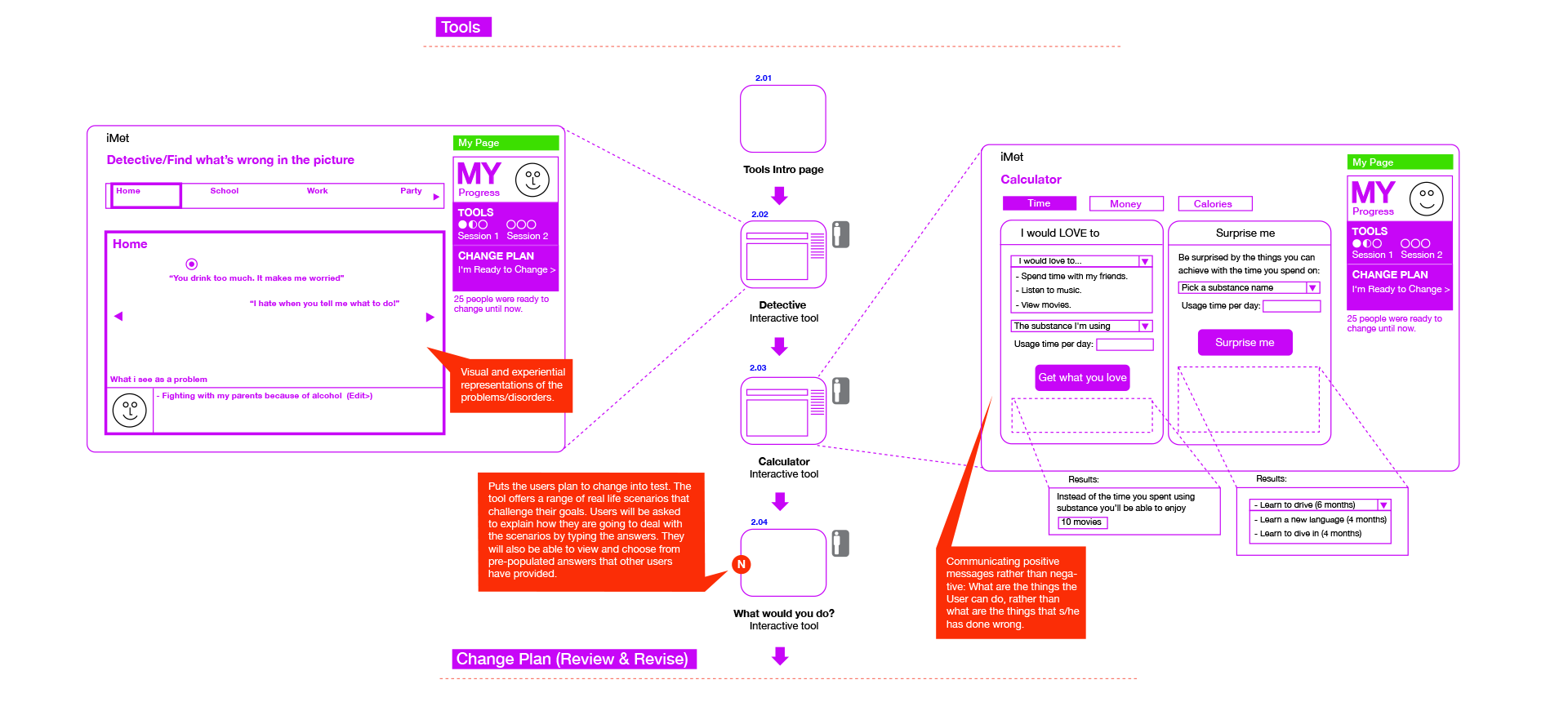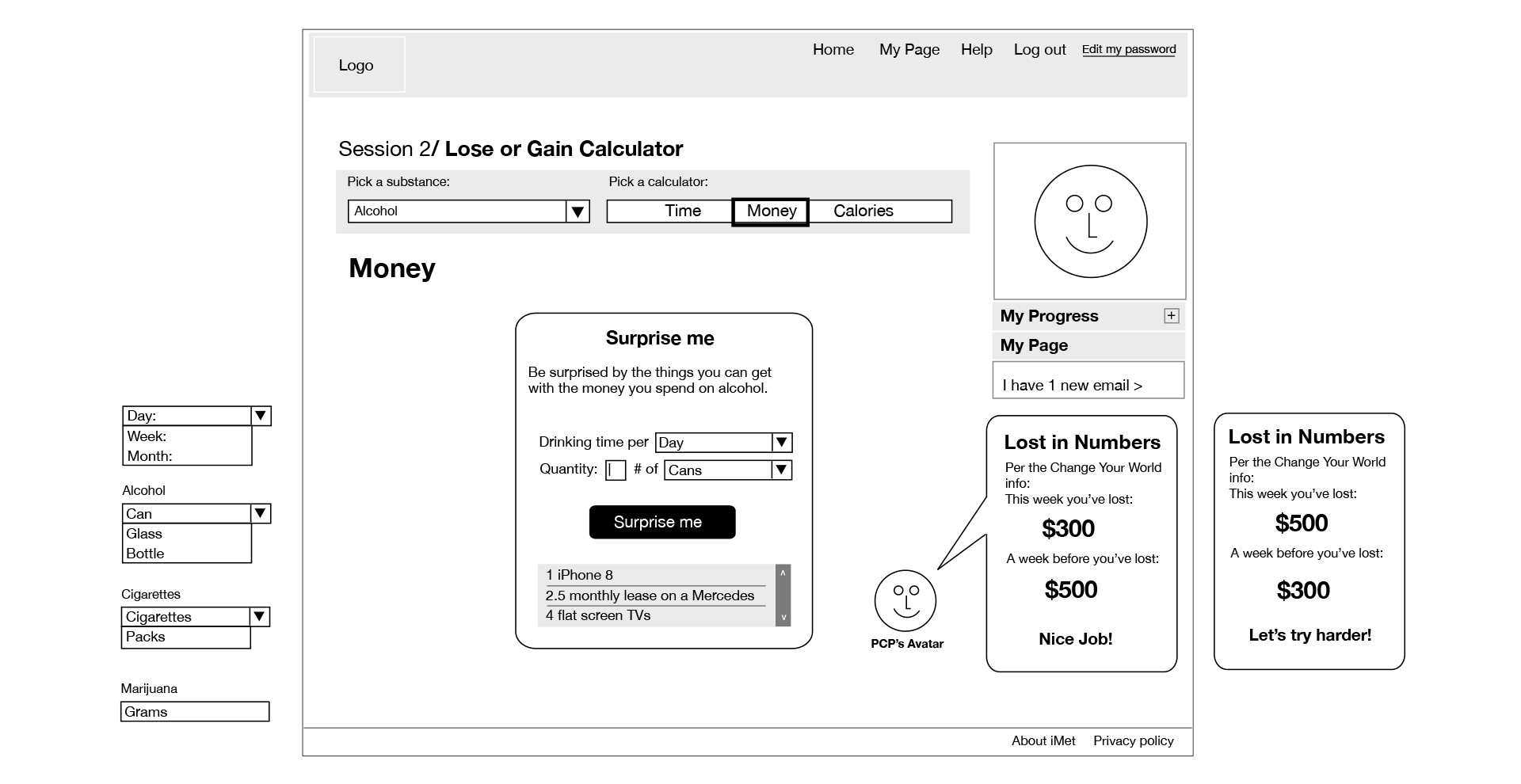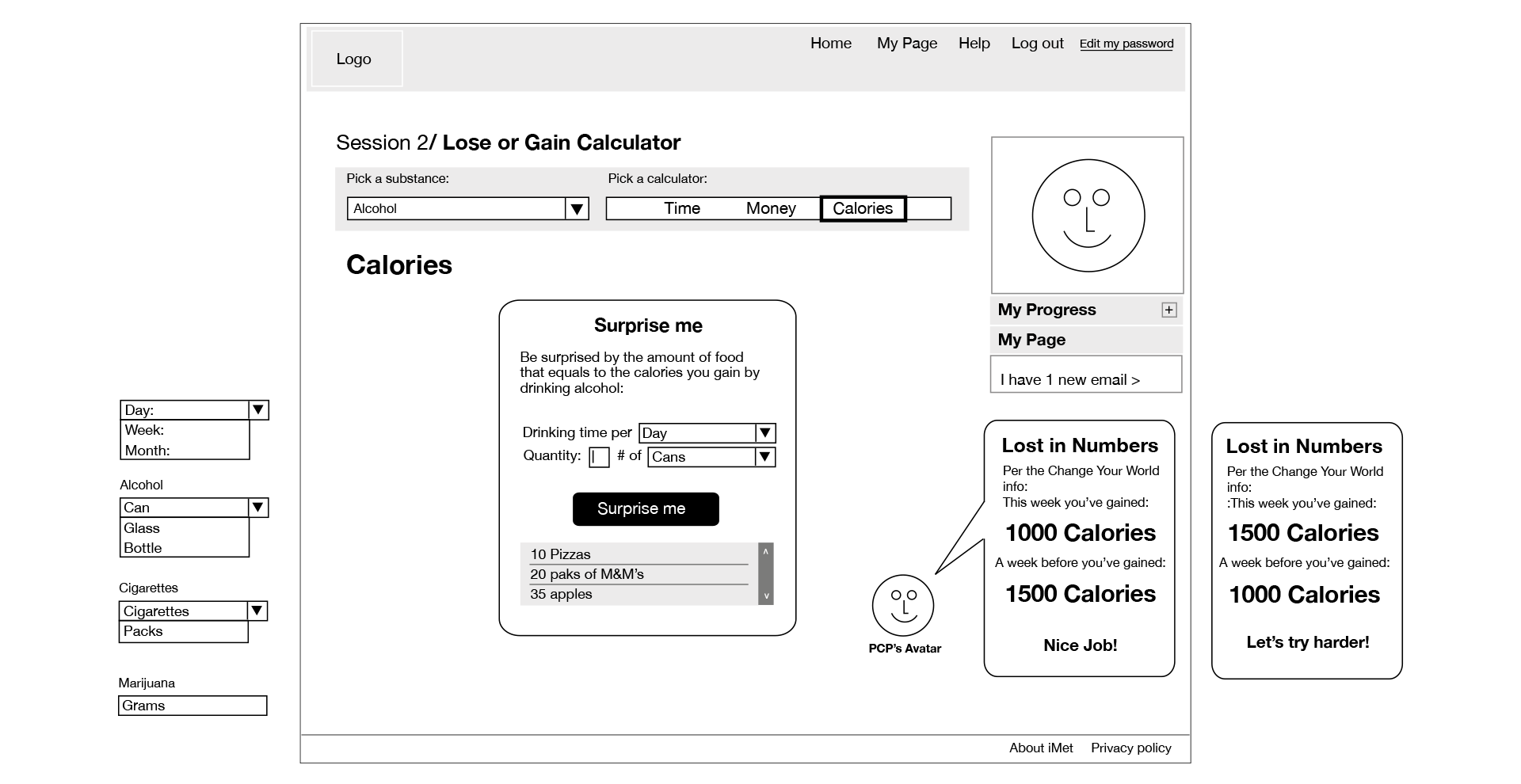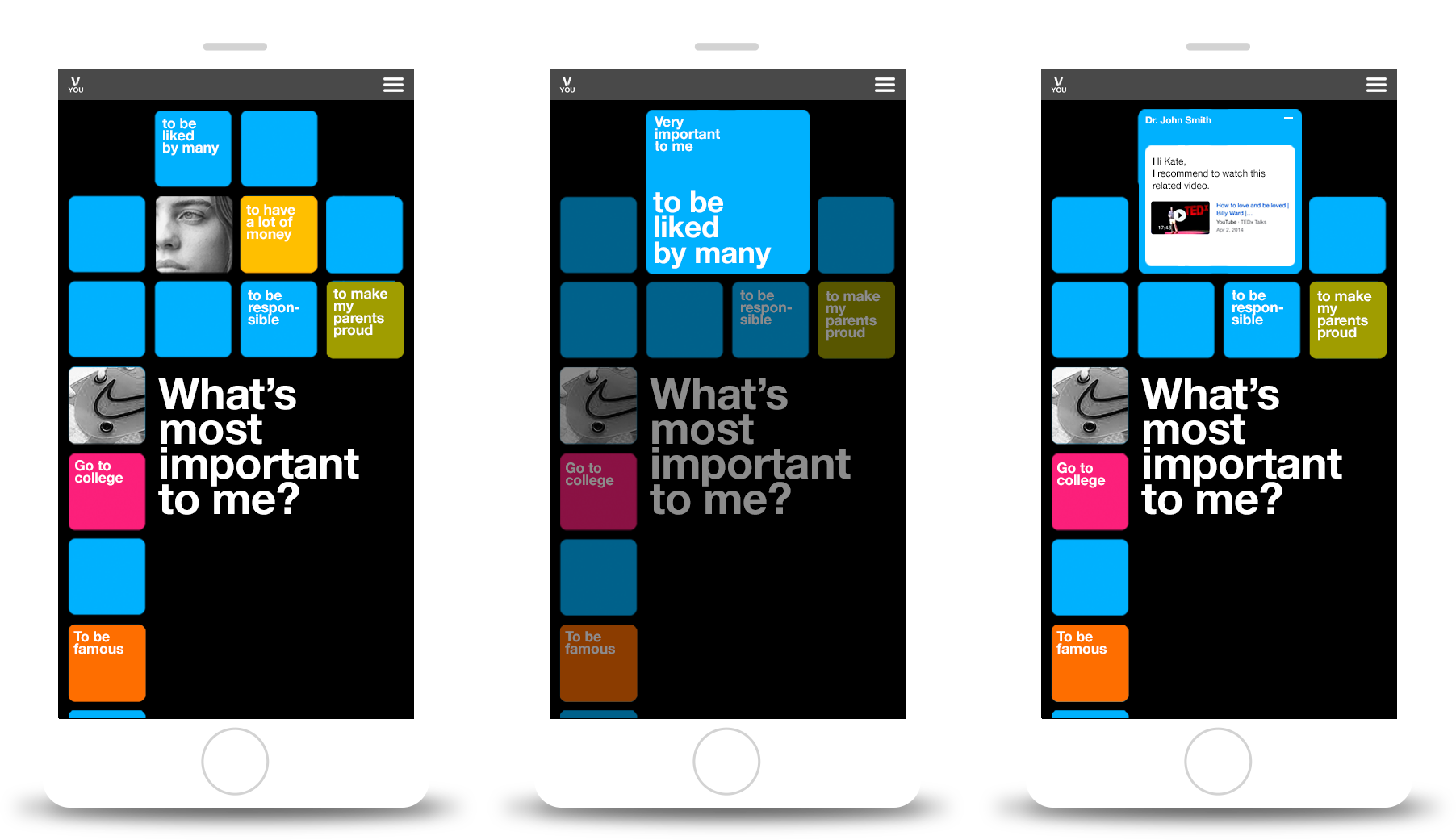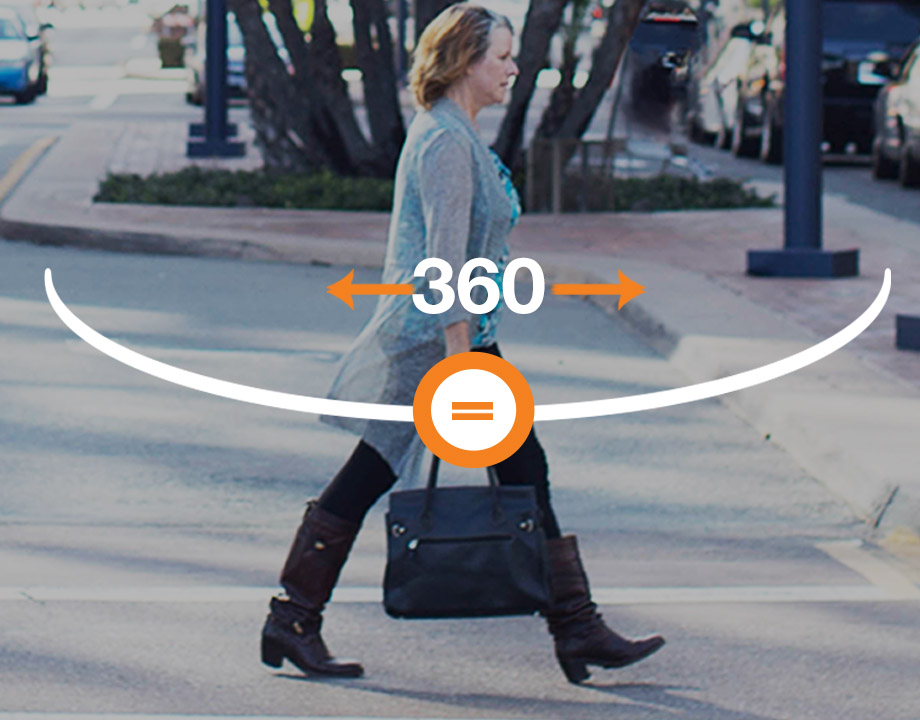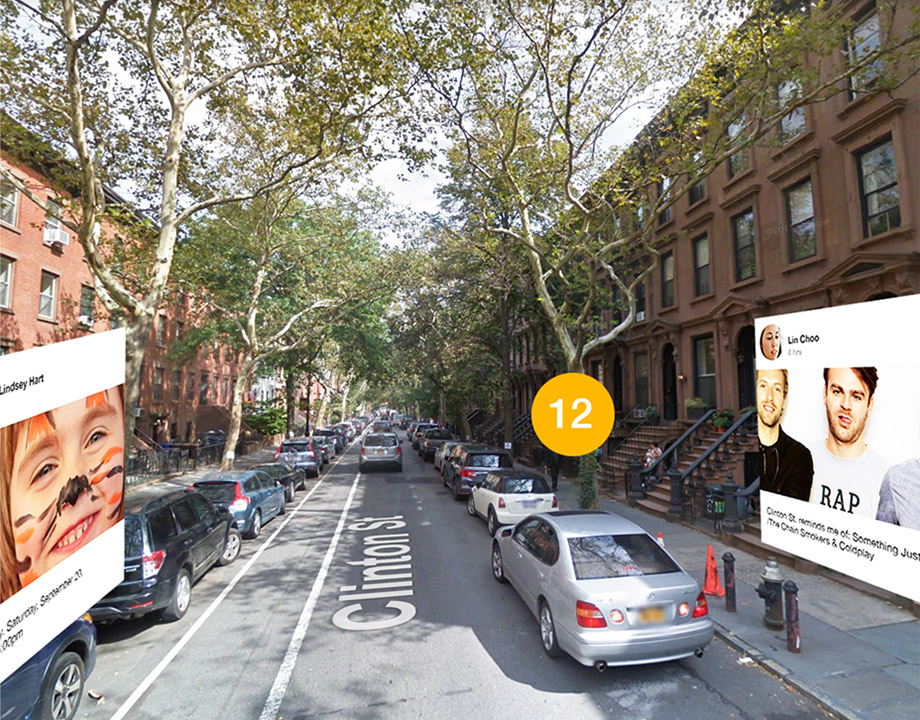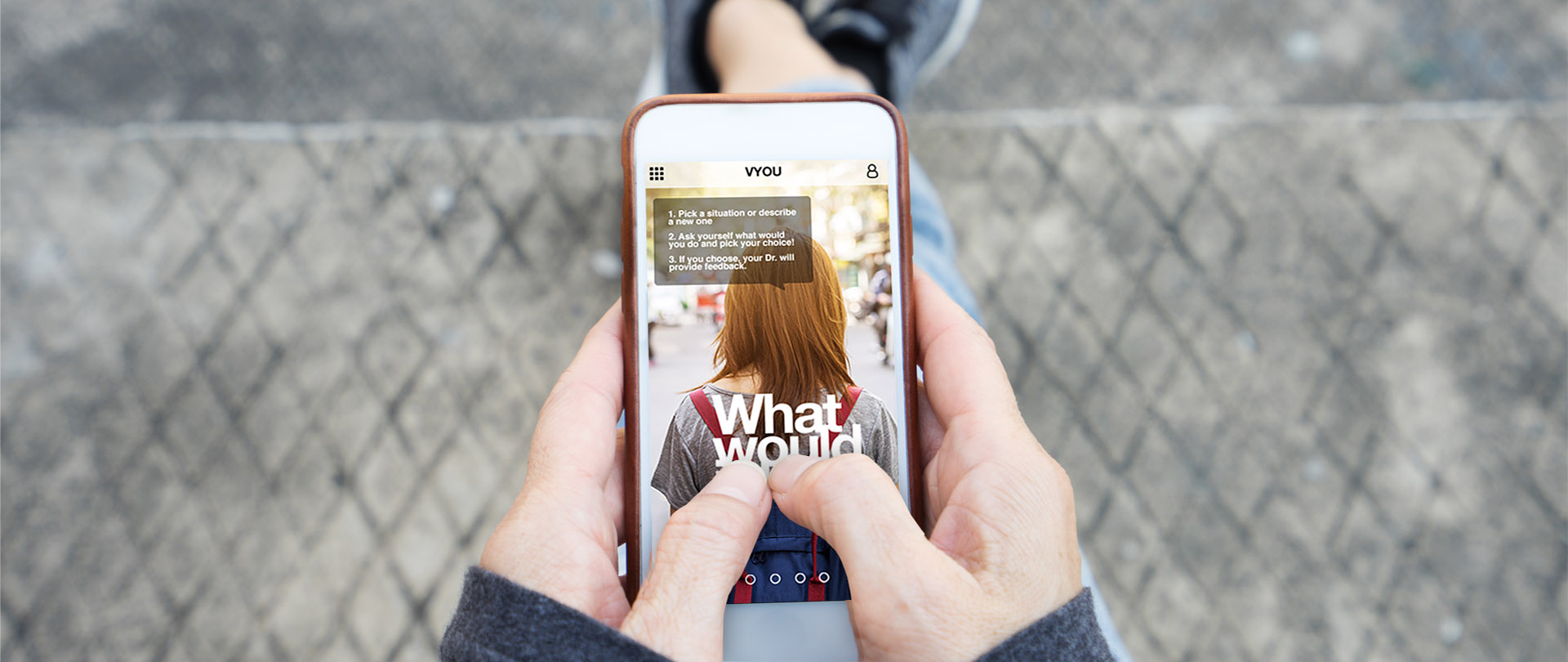
Digital therapy.
HARVARD UNIVERSITY + BOSTON CHILDREN’S HOSPITAL
Problems
- Based on research, positive behavior change in teens’ substance abuse positive behavior is primarily influenced by their pediatricians + requires nudges over time.
- Pediatricians aren’t paid by health insurance companies to discuss substance abuse + don’t have the tools to address the topic.
- Teens often miss pediatrician appointments.
Challenges
- How might we translate human-to-human treatment nuances to human-AI interactions?
- How might we create a product and service that teens will want to use?
.
Solutions
- Human-AI Motivational Enhancement Therapy intervention tools for teens that target tobacco, alcohol, + drug use.
- Teens get support from their pediatrician/pediatrician bot at any time.
- Teens get the information that they want, when they want it, in order to make their own choices.
Results
- Health insurance companies now cover pediatricians’ time asking teens about substance abuse.
- Pediatricians across the US are now trained on how to ask teens about their substance abuse behavior.
- Tested by thousands of teens across 6 U.S. hospitals.
- Tools purchased by 2 governments.
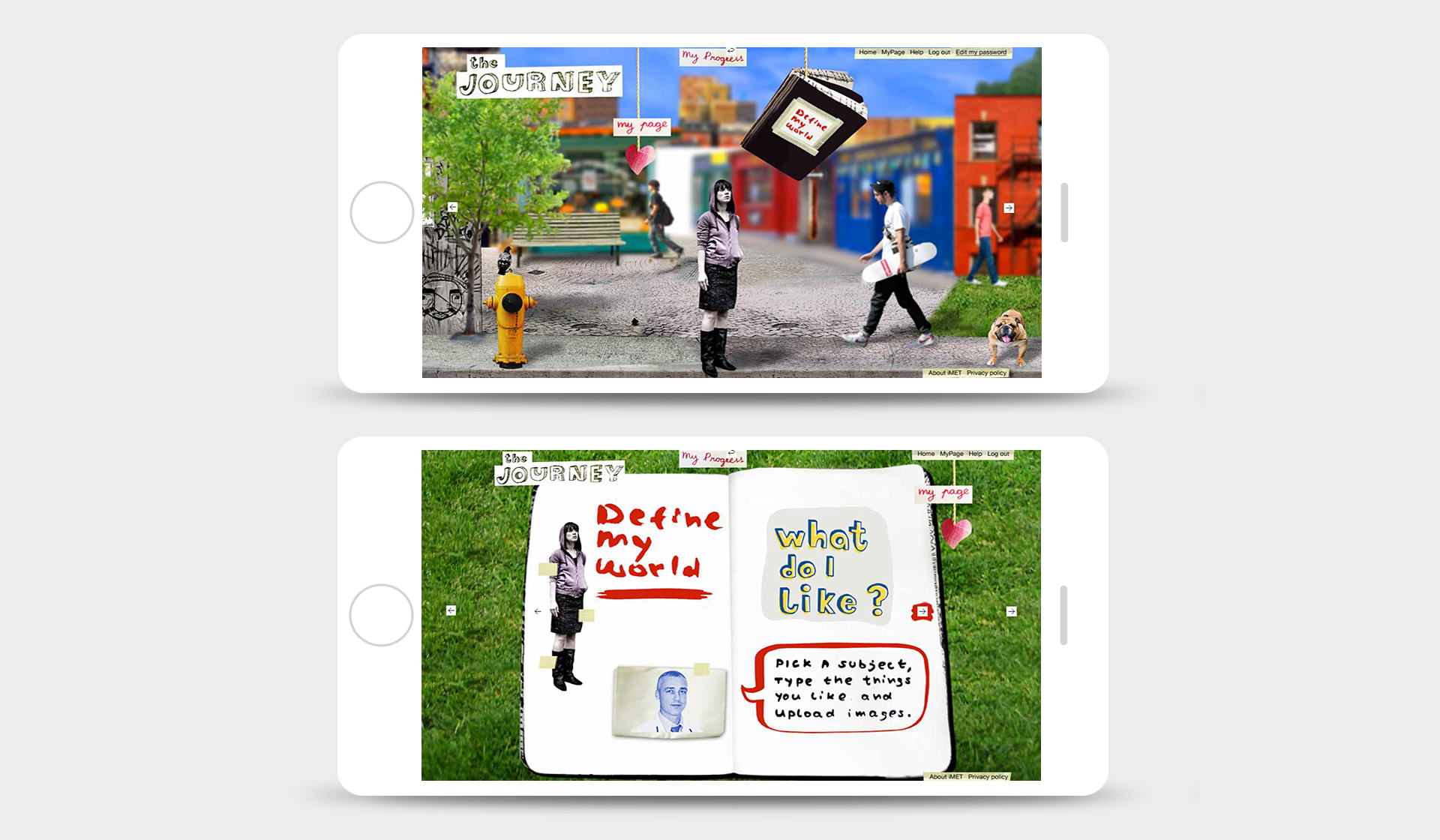
Data-driven behavioral therapy.
Helping teens 14-18 who have problems with substance abuse but don’t want to change or don’t view it as a problem at all. Access is provided to the teens in a pediatrician’s office, when when visiting for checkup or treatments. From there on, the experience is independent, while virtually communicating with the doctor. Strategy and product development was led by:
- On-site immersion
- Observations of 1/1 clinician- teen treatments.
- Interviews of teens, researchers, clinicians.
- Teens’ user testing and implementation throughout the product development life cycle.
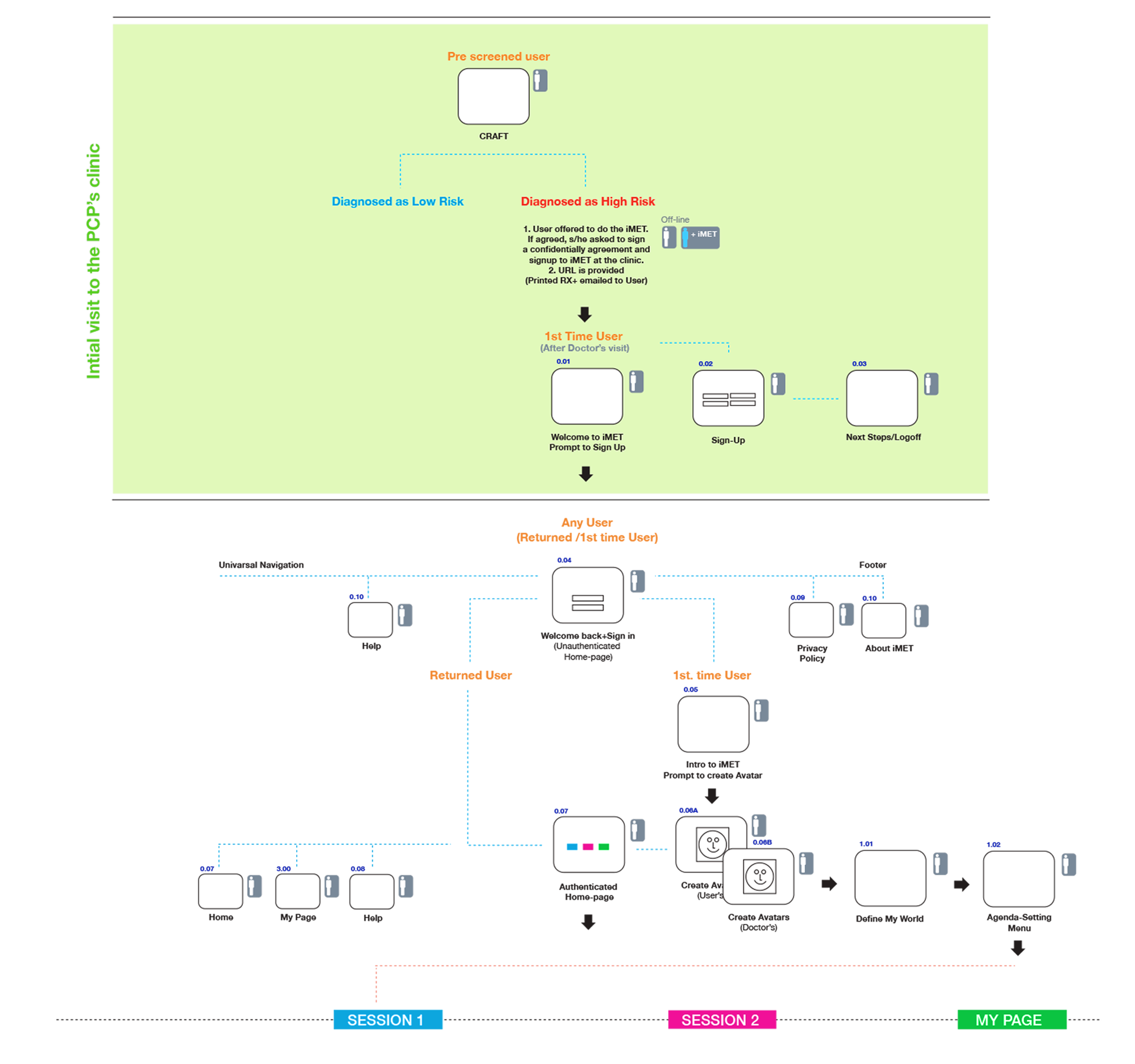
Motivational enhancement therapy.
The tools are based on therapeutic treatments created by Harvard University and Boston Children’s Hospital team. The goal is for teens to change their substance use by asking themselves questions they might not have the opportunity to be asked or think about, like:
- What is important to them?
- What are their goals?
- What do they like and dislike about their substance use?
The questions are designed to raise doubts that bring teens to action. The experience journey maps aren’t linear and the end goal isn’t singular and set, reflecting real life behavior.
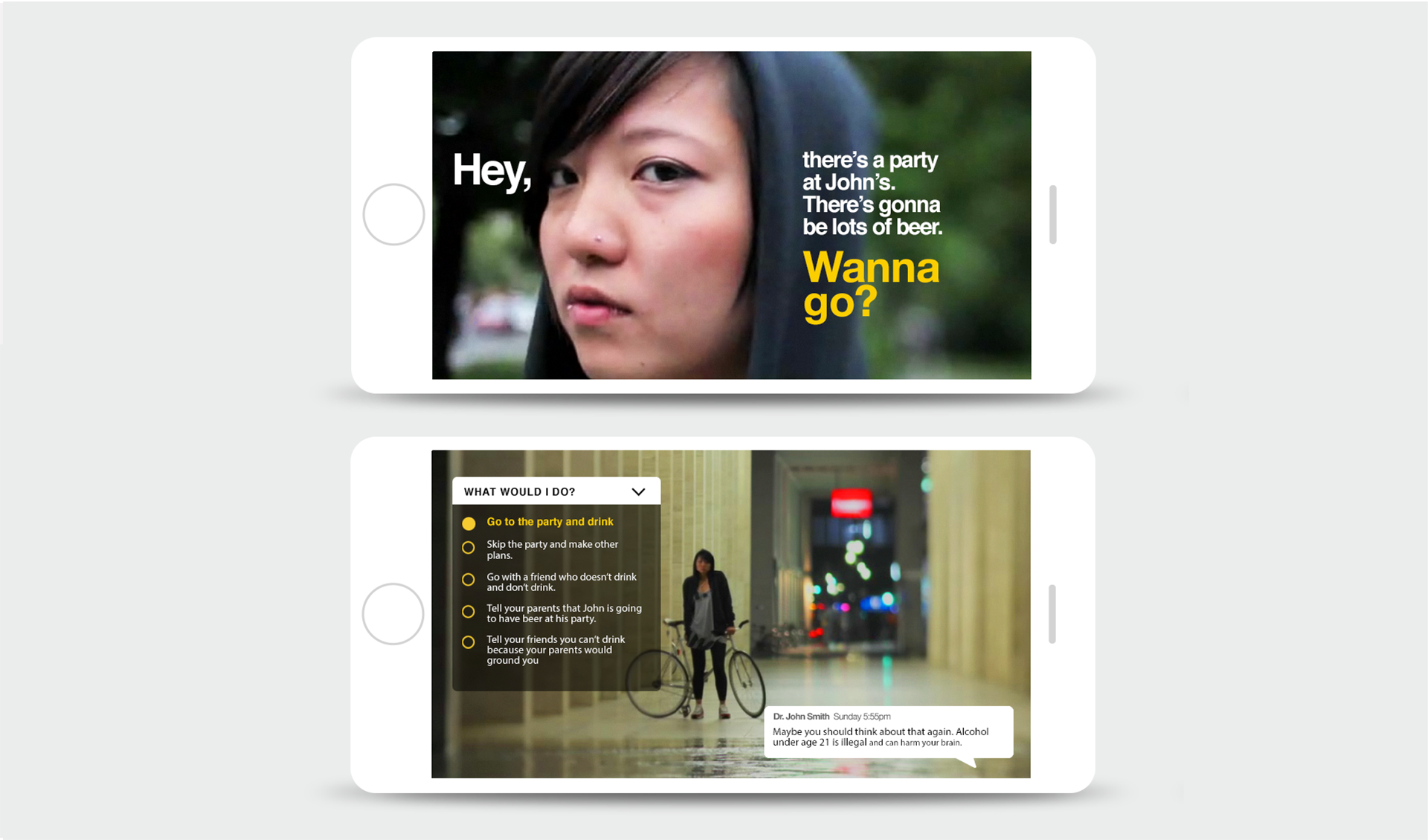
Personalizing data.
Translating data to meaningful information for teens like:
- What could they eat with the same amount of calories
- What foods could they eat that have the same amount of calories as the alcohol they consumed last month?
- What could they buy with the amount of money they spent on opioids in the past three months?
- What could they accomplish with the time they spent on smoking tobacco in the past six months?
In collaboration with Dr. Sharon Levy, MD, MPH, Director, Adolescent Substance Abuse Program (ASAP) at Boston Children’s Hospital with collaboration with Harvard Medical Center.
